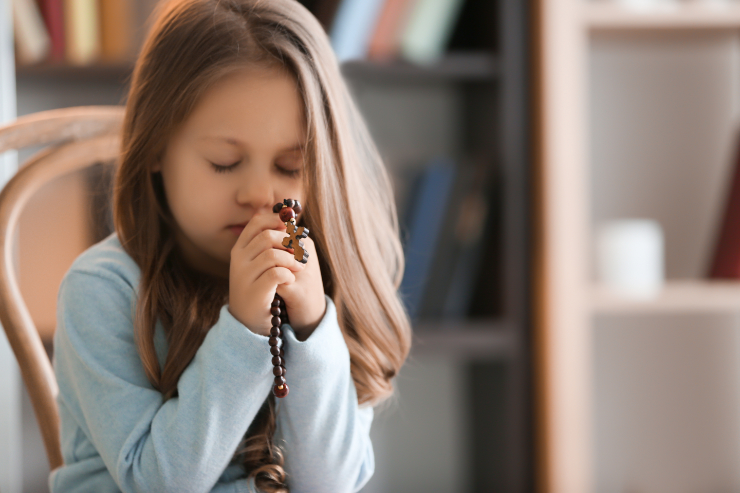 Lessons from Childhood
Lessons from Childhood
At night when I can’t sleep, I think about my happy childhood a lot. I grew up with animals: dogs, ducks, chickens, rabbits, goats, pigs, cows, and horses. Happy as the days were, I experienced a lot of loss and death with that many animals around.
The first pet I remember was a duck named Oscar who toddled around with me until he swam away, causing me to utter my first bad word, a four letter alliterative that preceded “duck”. The first dog I remember was a dachshund named Fritz who morphed into a brown hairy mutt. My parents kept replacing Fritz-es from the pound as best as they could because the dogs kept dying and they didn’t want to tell us. “Mom, what’s happened to Fritz?” “Oh, he just looks a little different.” They later realized it was a diseased dog bed.
I had a goat named Charlene, named in honor of my Daddy (Charles) because he saved her life. Nancy, the mother goat, died in kid-birth. I later found Nancy’s bones behind the barn along with some very small ones, Charlene’s less fortunate sibling. Charlene became my pet and I taught her circus tricks. She could jump through hoops and stand with all fours on a cement brick like elephants do. Her home was in a horse stall and she loved me so much that she stuck her head between the boards to bleat after me when training was over. She died pretty young though; Dad found her hanging there one day, dead because she lost her footing while longing for me. God bless Charlene.
There was Buzz, my horse who won trophies running the barrels, with me hanging on in the saddle. He got in a fight with a neighbor horse, messed his foot up in barbed wire, and had to be sold at auction. He could only sell for soap, and didn’t bring much. Dad was pretty straight about it, but he still cried with me.
And then there was Herby. Herby was a fighter too and he killed so many other roosters he had to be penned alone. I took pity on him since he’d lost an eye in a fight and looked sad, and I decided to rehabilitate him and give his life purpose. First I showed him who was boss, and then I showed him how to stay on my skateboard while I pulled it with a rope. Eventually he rode on the handle bars of my Pink Panther bicycle, up and down the road, Herby and me! He stood a little sideways since he only had one good eye. He went missing for a while until one day I found him pieced and plastic-wrapped in the deep freeze with a name tag. You never saw a lanky freckle-faced girl run screaming so fast. Then the unthinkable happened. One night at dinner Mom told us we were eating Herby. “Dad bought these chickens to feed us, and Herby’s time has come. Eat; it’s no different than the stuff from the store.” When we refused, Mom ratcheted up the guilt trip. “Poor Herby, died so you could eat him and there you go wasting him.” So, we ate.
My parents looked death in the face and in that way they were courageous. Their focus was on something greater, the family and us kids, and they were custodians of God’s creation. We didn’t grow up wimps, and my parents earned our respect. They were tough, and they were our heroes. And we were grateful we were humans and not chickens.
“Christ the Savior” by Fr. Reginald Garrigou-Lagrange, O.P.
This Lent I have been reading Christ the Savior by Fr. Reginald Garrigou-Lagrange, O.P. It’s a study of the Third Part of the Summa Theologica of St. Thomas Aquinas. He writes of the grace, faith and hope in Mary. On Mount Calvary the Blessed Virgin Mary showed the most sublime acts of faith and hope. She never doubted that her son was the Son of God, the conqueror of sin and death, even though He seemed to be conquered as she watched Him suffer and die. Even when all the Apostles except St. John could not watch, she had the courage to witness the death of Christ. She looked death in the face courageously, at something beyond herself. She would have died for her love of Him. Instead, she could only behold Him at the foot of the cross.
“Behold Jesus crucified! Behold His wounds received for love of you! His whole appearance betokens love. His head is bent to kiss you. His arms are extended to embrace you. His heart is open to receive you. Oh what love! Jesus dies on the Cross, to preserve you from eternal death. Most lovable Jesus, who will grant that I may die for love of Thee?” (Stations of the Cross, Twelfth Station, by St. Francis of Assisi)
The Blessed Mother is said to be “full of grace,” but she did not have grace in its greatest possible perfection as Christ did. For her, “full of grace” is in reference to herself. She had all the grace that she could possibly receive, the most of any creature. Christ had all the grace that could possibly be received because of the grace of the hypostatic union where a human nature was assumed by the Divine Nature in the Son of God. His fullness of grace was in the human soul of Christ, and in this fullness of grace, Christ is the source of grace for all, and thus the source of salvation.
Though Mary had the most hope and faith of all intellectual creatures, St. Thomas says that in Christ there was no hope or faith. Why the contrast? Because Christ had perfect grace in His human soul and he had all the virtues perfectly. Since He had them perfectly, there was no need in Christ – no possibility – for the theological virtues of hope and faith. At the moment of conception Christ saw God’s Essence fully and since faith is the “substance of things to be hoped for, the evidence of things that appear not” there could be no faith or hope in Christ lest we deny the very foundation of salvation itself. He was in full possession of God, the object of hope and faith. He was Hope and Faith personified, and He gave Himself to us. Mary received Him the purest.
Deep Theology – Simple Childhood
I understand these deep theological explanations in the context of simple childhood experiences. When I lay awake at night and my mind wanders, I often discover seeds that were planted and are now ready to be nurtured. Death is a part of life, but death is never easy to confront. I cannot imagine watching one of my children suffer and die, I cannot imagine facing it with courage. I can imagine running in fear and hiding. Yet, I know I will be able to handle anything life brings if I accept grace that is offered, and the faith that comes with it for all that God promises – the hope of eternal bliss sharing in the beatific vision. None of us creatures are as perfect as Christ, so we all need faith and hope in us. We need grace; therefore we need Christ in us. We need to strive to be like Mother Mary, and only then are we strong enough to do whatever God asks of us in this messy, fallen world of creatures.
The Church is the Mystical Body of Christ, the Kingdom, a society of men who receive God’s gifts of truth and grace through Christ, living it out as One Body. It is an organism. Christ said, “I am the way, and the truth, and the life.” He did not say that He “has” the way, truth and life, but that He “is.” He does not fill the mind of man with truth, He is the Truth, and the soul of man is sanctified by grace because Christ lives in him, receiving the gifts only by receiving possession of the Giver.
And, just like Mom said about Herby, too often we take this edifying gift of the Eucharist – the real presence of Christ and all the graces that flow from it – for granted when we look at temporal intentions. Sometimes after Lent on Easter Sunday, I feel like my mom staring incredulously at ungrateful or confused children around the table. Christ suffered and died to give us eternal life, don’t waste it! Christ feeds us, and even if we can’t fully understand the Incarnational mystery, we ought never take it for granted for it is the grace that saves us. After focusing on my own sins, I pray that seeds are planted in every wandering-heart-twice-a-year-Mass-goer too, hoping that my fellow brothers and sisters in Christ will have their own personal revelations that nourish those seeds through the grace of Christ.
After all, people think of all kinds of things laying awake in the stillness of the night.
Sources
Christ the Savior by Fr. Reginald Garrigou-Lagrange, O.P., pages 216-219.
Theology and Sanity by Frank Sheed, pages 311-312.
My childhood home.
Visit Stacy’s website: http://www.acceptingabundance.com/
Follow Stacy on Facebook: http://www.facebook.com/strasancos
Please help us in our mission to assist readers to integrate their Catholic faith, family and work. Tell your family and friends about this article using both the Share and Recommend buttons below and via email. We value your comments and encourage you to leave your thoughts below. Thank you! – The Editors













